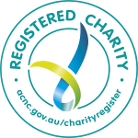Introduction and Preamble
HealthServe Australia(“HealthServe Australia”) is committed to pursuing our development objectives in line with best practice and accurately representing our activities to the people we work with, our donors and the public.
HealthServe Australia’s Policy on Non-Development Activity is guided and informed by the following:
- Australian Council for International Development’s (ACFID) Code of Conduct and Quality Assurance Framework, especially Commitment 7.3; Indicator 7.3.2; and General Definitions;
- HealthServe Australia’s Aid and Development Practice Policy;
- Australian Department of Foreign Affairs and Trade’s (DFAT) Overseas Aid Gift Deduction Scheme (OAGDS) Guidelines.
Purpose
The purpose of this policy is to guide HealthServe Australia and our partners to clearly separate aid and development from non-development objectives and activities. This policy addresses HealthServe Australia’s ACFID compliance obligations when communicating with or soliciting donations from private donors, aid agencies, sponsors, supporters and the general public, including fundraising for restricted and unrestricted purposes.
Scope
This Policy applies to all HealthServe Australia activities and to all HealthServe Australia employees and volunteers. The policy also extends to HealthServe Australia’s partners and associated implementing organisations.
Background
HealthServe Australia is a development organisation that works to significantly improve the health, wellbeing and self-reliance of. In some instances HealthServe Australia may partner with faith-based organisations on the basis that their delivery is without evangelising or making participation conditional on conversion or adherence to a particular religious denomination. HealthServe Australia may partner with advocacy organisations from time to time on the basis that their activities are not directly in support of a political party or candidate.
Definitions
Aid and Development Activity
Aid and development activity can be distinguished by the following principles that inform HealthServe Australia’s development program standards set out in HealthServe Australia’s Aid and Development Policy:
- a) gives priority to the needs and interests of the people being served;
- b) encourages self-help and self-reliance among beneficiaries and thus avoids creating dependency;
- c) involves beneficiary groups to the maximum extent possible in the design, implementation and evaluation of projects and programs;
- d) is based on an understanding of the history and culture of the people served;
- e) supports the economic and environmental sustainability of beneficiary communities and groups;
- f) respects and fosters internationally recognised human rights, both socio-economic and civil-political; and enhances gender equity, peace-building, and civil society; g) seeks to recognise and advance the dignity of beneficiaries in all activities undertaken and to operate independently of any religious or political affiliation, while respecting diversity of race, gender, ethnicity, age, religion, and political affiliation.
Non-Development Activity
HealthServe Australia defines Non-Development Activity according to the ACFID Code of Conduct: “Includes activity undertaken to promote a particular religious adherence or to support a particular party, candidate or organisation affiliated to a political party”, and also extends this definition to include welfare.
Evangelical activities
Evangelical activities are those activities that promote a particular religious adherence or are undertaken with the intention of converting individuals or groups from one faith and/or denominational affiliation to another.
Partisan political activities
Partisan political activities are those that are associated with facilitating or supporting specific political individuals to gain power. This does not include advocacy which is aimed at persuading and influencing decision makers and opinion leaders and is not aimed at promoting partisan political objectives.
Recognised Development Expenditure (RDE)
Recognised Development Expenditure (RDE) is the annual eligible expenditure of a Non-Government Organisation (NGO) using contributions from the Australian community. Eligible expenditure is for the NGO’s own development assistance, emergency relief or rehabilitation activities overseas and development education in Australia. Eligible contributions include donations of cash, gifts-in-kind and volunteer services. Up to half of the RDE can be from eligible gifts-in-kind and/or eligible volunteer services.
Welfare
Welfare activities are defined as care and maintenance, other than in refugee and emergency situations, which aims to maintain people in a particular condition on a longer-term basis. Substantial and broad impact on social and economic conditions in the community is not normally expected from welfare programs. Welfare may be provided to an individual or family including home-based and institutional care programs, such as those provided by orphanages, homes for the elderly, hospices and the provision of food for those who are destitute.
Welfare activities are typically:
- implemented independently of other sustainable community development activities;
- include no strategy for integration into broader community development programs;
- provided on an individual or family basis, rather than on a community basis, and are unconnected to emergency needs;
- implemented on a long term basis with no clear exit strategy.
Policy Statement
HealthServe Australia is a health and development organisation, and does not provide support for non-development activities, including evangelical activities, partisan political activities, or welfare. HealthServe Australia is committed to ensuring that funds and other resources designated for the purpose of aid and development are used only for those purposes. HealthServe Australia will have a clear separation between aid and development and non-development objectives and activities. This separation will be clear in all fundraising, program designs and related activities in public communications and in all reporting including annual reports. Funds raised for aid and development purposes will not be used to exploit people and communities who are vulnerable and will not place any conditions or obligations on recipients in terms of non-development, religious or political outcomes that would affect their access to Non-Development Activity services being offered. Should there be any components of partner programs which involve evangelical or partisan political activities, these will be promoted and accounted for separately. Any fundraising solicitations that include references to both aid and development and non-development activities will provide donors with the choice of contributing to aid and development activity only.
HealthServe Australia will ensure that any such separation in fundraising, programs and other activities, in public communications and in reporting extends to partner and implementing organisations and is documented. Partner agreements (MoU or equivalent) will require the partner to agree that HealthServe Australia funds designated for aid and development purposes will not be used to fund any non-development activity. Ongoing dialogue between HealthServe Australia and its partners will reinforce the definitions of development and non-development activity and the need for separation between development and non-development activity.
Non-development activities are NOT considered to be Recognised Development Expenditure, nor acceptable for receipt of funding derived from Tax Deductible gifts.
Policy in Practice
- The Program Director will appraise all project proposals to determine whether they include non-development components.
- Any issues will be noted and then be followed up to ensure that the policy requirements are satisfied before the project is approved.
- Appraisers record any aspects of the project that should be closely monitored over the life of the project to ensure compliance with this policy.
- Partner capacity assessment processes require HealthServe Australia to identify whether the partner is engaged in non-development activities, and if so, how it is able to manage and account for them separately to aid and development activity.
- Components of projects that represent non-development activity will be managed, reported and accounted for separately to aid and development components.
- In-country project monitoring will include, where relevant, monitoring of the separation of non-development activities from aid and development activities.
- HealthServe Australia’s Communications, Media and Fundraising Policy will address appropriate reporting in organisational promotional materials.
- All articles, website or social media material, photos or video will be reviewed for differentiation between aid and development and non-development activities.
- Communications materials and program proposals are reviewed prior to publication to ensure separation of reporting and fundraising for aid and development and non-development activities.
- Fundraising materials will be reviewed prior to publication to ensure that solicitations make a clear distinction between aid and development and any non-development activities.
- Where fundraising solicitations include references to both aid and development and non-development activities, they will be reviewed to ensure that donors are provided with the choice of contributing to aid and development activity only.
- Communication with new partners will state HealthServe Australia’s position on support for non-development activity.
- HealthServe Australia’s partners will receive a copy of this policy, where they would not reasonably be believed to already be committed to the same or equivalent principles and procedures (for example, organisations which are not already DFAT Accredited, or signatories to the ACFID Code of Conduct).
- HealthServe Australia’s partner agreements - Memorandum of Understanding (MoU) or equivalent - will include clear definitions of aid and development activity and non-development activity.
- Confirmation of internal compliance with this policy will be undertaken at least once annually.
- Introduction of this policy will be included in the induction process and will be read by all new staff.
HealthServe Australia is a member of the Australian Council for International Development (ACFID) and is a signatory to the ACFID Code of Conduct. The Code requires members to meet high standards of corporate governance, public accountability and financial management. Complaints relating to alleged breaches of the Code of Conduct by any signatory agency can be made by any staff member or member of the public to the ACFID Code of Conduct Committee. More information about the ACFID Code of Conduct can be obtained from HealthServe Australia or from ACFID at: W: http://www.acfid.asn.au/ E: This email address is being protected from spambots. You need JavaScript enabled to view it.




